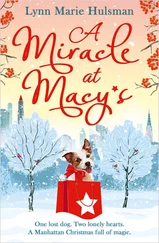Jo Coudert - The Dog Who Healed A Family
Здесь есть возможность читать онлайн «Jo Coudert - The Dog Who Healed A Family» — ознакомительный отрывок электронной книги совершенно бесплатно, а после прочтения отрывка купить полную версию. В некоторых случаях можно слушать аудио, скачать через торрент в формате fb2 и присутствует краткое содержание. Жанр: unrecognised, на английском языке. Описание произведения, (предисловие) а так же отзывы посетителей доступны на портале библиотеки ЛибКат.
- Название:The Dog Who Healed A Family
- Автор:
- Жанр:
- Год:неизвестен
- ISBN:нет данных
- Рейтинг книги:3 / 5. Голосов: 1
-
Избранное:Добавить в избранное
- Отзывы:
-
Ваша оценка:
- 60
- 1
- 2
- 3
- 4
- 5
The Dog Who Healed A Family: краткое содержание, описание и аннотация
Предлагаем к чтению аннотацию, описание, краткое содержание или предисловие (зависит от того, что написал сам автор книги «The Dog Who Healed A Family»). Если вы не нашли необходимую информацию о книге — напишите в комментариях, мы постараемся отыскать её.
The Dog Who Healed A Family — читать онлайн ознакомительный отрывок
Ниже представлен текст книги, разбитый по страницам. Система сохранения места последней прочитанной страницы, позволяет с удобством читать онлайн бесплатно книгу «The Dog Who Healed A Family», без необходимости каждый раз заново искать на чём Вы остановились. Поставьте закладку, и сможете в любой момент перейти на страницу, на которой закончили чтение.
Интервал:
Закладка:
After stitching up the incision, Dr. Zolton had orders for Jean. “I want you to stay with him until he’s completely out of the anesthetic to make sure he doesn’t hurt himself. Also, you’ve got to give him an antibiotic injection twice a day for the next seven days. I’ll show you how.”
There was an unused stable on the Glen Gardner grounds. Jean took Frankie there and settled him in a stall, and all night long Jean sat in the straw beside him. “Oh, you dumb donkey,” he murmured whenever Frankie stirred, “you got yourself in such a lot of trouble, but it’s going to be all right. Lie still. Lie still.” And he stroked Frankie’s head and held him in his arms when Frankie tried to struggle to his feet. With the soothing, known voice in his ear, Frankie each time fell back asleep, until finally, as the sun was coming up, he came fully awake. Jean gave him water and a little food, and only when he was sure Frankie was not frightened did he take his own stiff bones home to bed.
When word came that Frankie had survived the operation, a meeting of the residents’ council at Glen Gardner was called. Ordinarily it met to consider recommendations and complaints it wished to make to the staff, but on this day Mary, who was its elected president, had something different on her mind. “You know as well as I do that there’s no operation without a big bill. Now, Frankie’s our deer, right?” The residents all nodded. “So it stands to reason we’ve got to pay his bill, right?” The nods came more slowly.
“How are we going to do that?” Kenneth, who had been a businessman, asked.
After considerable discussion, it was decided to hold a sale of cookies that they would bake in the residents’ kitchen. Also, they would take up a collection, with people contributing what they could from their meager earnings in the sheltered workshop or the small general store the patients ran on the premises. “But first, before we do any of that,” a resident named Marguerite said firmly, “we have to send Frankie a get-well basket.”
The residents’ council worked the rest of the day finding a basket, decorating it and making a card. The next day a sack of apples was purchased at the general store and each apple was polished until it shone. Mary, Marguerite and George were deputized to deliver the basket. Putting it in a plastic garbage bag so the apples wouldn’t roll down the hill if they slipped in the snow, the three of them set out. They arrived without mishap and quietly let themselves into the stable. Frankie was sleeping in the straw, but he roused when they knelt beside him. Mary read him the card, Marguerite gave him an apple to eat, George settled the basket where he could see it but not nibble it and the three of them returned to the main building to report that Frankie was doing fine and was well pleased with his present.
By the seventh day after the operation, Jean called Dr. Zolton to say it was impossible to catch Frankie and hold him still for the antibiotic injections. Dr. Zolton chuckled. “If he’s that lively,” he told Jean, “he doesn’t need antibiotics.” But he warned it was imperative that Frankie be kept inside for eight weeks, for if he ran on the leg before it knit, it would shatter again.
Concerned about what to feed him for that length of time, Jean watched from the windows of his own house in the woods and on the grounds of Glen Gardner to see what the deer were eating. As soon as the deer moved away from a spot, Jean rushed to the place and gathered the clover, alfalfa, honeysuckle vines, young apple leaves—whatever it was the deer had been feeding on. Often George helped him, and each day they filled a twenty-five-pound sack. Frankie polished off whatever they brought, plus whatever residents coming to visit him at the stable had scavenged from their own meals in the way of rolls, carrots, potatoes and fruit.
“We’d go to see him, and oh, he wanted to get out so bad,” remembers Marguerite, a roly-poly woman with white hair springing out in an aura around her head. “Always he’d be standing with his nose pressed against a crack in the door. He smelled spring coming, and he just pulled in that fresh air like it was something wonderful to drink.”
When the collection, mostly in pennies and nickels, had grown to $135, the council instructed Jean to call Dr. Zolton and ask for his bill so they could determine if they had enough money to pay it. The day the bill arrived, Mary called a council meeting. The others were silent, eyes upon her, as she opened it. Her glance went immediately to the total at the bottom of the page. Her face fell. “Oh, dear,” she murmured bleakly, “we owe three hundred and ninety-two dollars.” Not until she shifted her bifocals did she see the handwritten notation: “Paid in Full—Gregory Zolton, DVM.”
When the eight weeks of Frankie’s confinement were up, Mary, Marguerite, George, Jean and Dr. Zolton gathered by the stable door. It was mid-June, and the grass was knee-deep in the meadow. Jean opened the barn door. Frankie had his nose against the crack as usual. He peered out from the interior darkness. “Come on, Frankie,” Jean said softly. “You can go now.” But Frankie was so used to someone slipping in and quickly closing the door that he didn’t move. “It’s all right,” Jean urged quietly. “You’re free.” Frankie took a tentative step and looked at Jean. Jean stroked his head. “Go on, Frankie,” he said, and gave him a little push.
Suddenly Frankie understood. He exploded into a run, flying over the field as fleetly as a greyhound, his hooves barely touching the ground.
“Slow down, slow down,” muttered Dr. Zolton worriedly.
“He’s so glad to be out,” Mary said wistfully. “I don’t think we’ll ever see him again.”
At the edge of the woods, Frankie swerved. He was coming back! Still as swift as a bird, he flew toward them. Near the stable he wheeled again. Six times he crossed the meadow. Then, flanks heaving, tongue lolling, he pulled up beside them. Frankie had tested his leg to its limits. It was perfect. “Good!” said George distinctly. Everyone cheered.
Soon Frankie was back in his accustomed routine of waiting for Jean by the power plant at six in the morning and searching his pockets for a treat, then accompanying him on at least part of his rounds. At noontime he canvassed the terraces when the weather was fine, for the staff often lunched outdoors. A nurse one day, leaning forward to make an impassioned point, turned back to her salad, only to see the last of it, liberally laced with Italian dressing, vanishing into Frankie’s mouth. Whenever a picnic was planned, provision had to be made for Frankie, for he was sure to turn up, and strollers in the woods were likely to hear a light, quick step behind them and find themselves joined for the rest of their walk by a companionable deer. One visitor whom nobody thought to warn became hysterical at what she took to be molestation by a large antlered creature until someone turned her pockets out and gave Frankie the after-dinner mints he had smelled there and of which he was particularly fond.
In the fall, Jean, anticipating the hunting season, put a red braided collar around Frankie’s neck. Within a day or two it was gone, scraped off against a tree in the woods. Jean put another on, and it, too, disappeared. “He doesn’t like red,” Pauline said. “He likes yellow.”
“How do you know?”
“I know.”
Jean tried yellow. Frankie kept the collar on. Jean was glad of this when Frankie stopped showing up in the mornings. He knew that it was rutting season and it was natural for Frankie to be off in the woods staking out his territory. The mountain was a nature preserve and no hunting was allowed, but still he worried about Frankie because poachers frequently sneaked into the woods; Frankie might wander off the mountain following a doe he fancied.
Читать дальшеИнтервал:
Закладка:
Похожие книги на «The Dog Who Healed A Family»
Представляем Вашему вниманию похожие книги на «The Dog Who Healed A Family» списком для выбора. Мы отобрали схожую по названию и смыслу литературу в надежде предоставить читателям больше вариантов отыскать новые, интересные, ещё непрочитанные произведения.
Обсуждение, отзывы о книге «The Dog Who Healed A Family» и просто собственные мнения читателей. Оставьте ваши комментарии, напишите, что Вы думаете о произведении, его смысле или главных героях. Укажите что конкретно понравилось, а что нет, и почему Вы так считаете.












